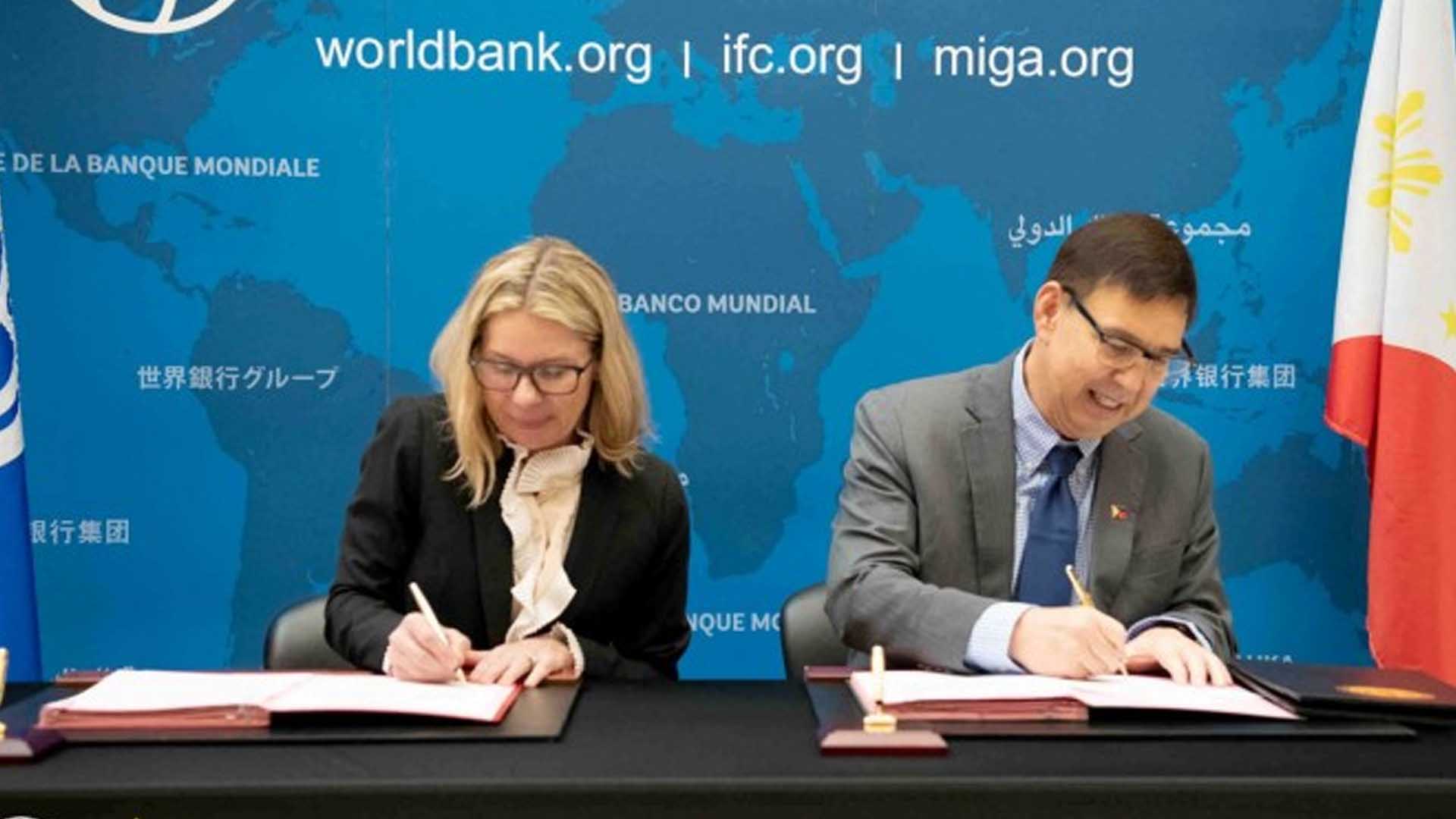The Philippines recently signed the Rapid Response Option (RRO) agreement with the World Bank Group (WBG), allowing the country to deploy resources from its existing bank portfolio more effectively to deliver a swift response when crises occur.
The Philippines is the first country to sign the RRO agreement with the World Bank, which is part of the WBG’s Expanded Crisis Preparedness and Response Toolkit.
In a statement on Monday, the Department of Finance said the agreement was signed by Finance Secretary Ralph Recto and WBG Managing Director Anna Bjerde on April 20 on the sidelines of the WBG and the International Monetary Fund Spring Meetings in Washington, D.C.
“I honestly cannot think of a better client and country to sign the first RRO. It fits nicely into the program that we are supporting in the Philippines under your leadership,” Bjerde said.
The RRO agreement allows countries in the event of an emergency to immediately access up to 10 percent of undisbursed and uncommitted balances in their portfolio with the International Bank for Reconstruction and Development or International Development Association for response actions.
The flexible resource reallocation will provide the Philippine government with immediate liquidity to rapidly deliver critical services such as healthcare, shelter, and food in times of emergency.
“It is wonderful to see that just in February, we went to the Board with this crisis response toolkit to just in a few months be able to operationalize it with such an important partner and client,” Bjerde said.
The RRO is just one of the latest tools developed by the WBG in its Expanded Crisis Preparedness and Response Toolkit.
Other new additions include substantially scaled-up access to pre-arranged financing for emergency response and expanded catastrophe insurance.
“We greatly welcome the introduction of the Rapid Response Option, which significantly enhances our capacity to ensure economic security for the Filipino people. Through this, we can safeguard our hard-earned development progress, strengthen our resilience against shocks, and keep our development targets on track,” Recto said. (PNA)







